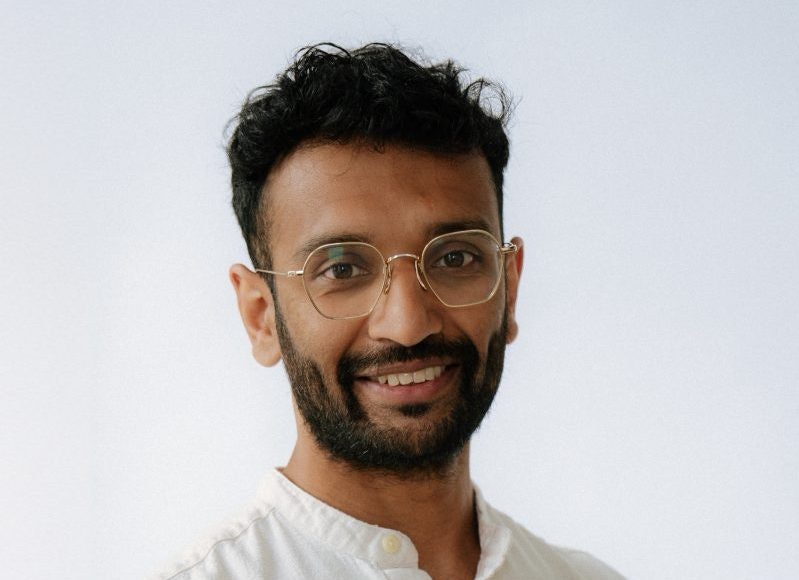Whether using machine learning models to identify harmful microorganisms, developing new drugs or automating lab processes, European techbio startups have caught the eye of investors this year. They’ve raised €1.69bn in funding up to August 22 according to Sifted data.
The UK has dominated deal count, with three of the top five cities coming from the country. London and Cambridge have seen 10 deals this year; Oxford, Paris and Barcelona follow with six. While London also placed highly in terms of overall funding (€165.6m) — it was pipped to top spot by Munich, which has brought in €275.5m this year.
Munich’s position is largely down to ITM Radiopharma’s €188m raise in June. The 20-year-old techbio, which develops and manufactures radiosotopes and therapy development plans for cancer treatments, counts BlackRock and the Qatar Investment Authority among its investors.
So, who’s going to be next? Investors from Octopus Ventures, Norrsken VC, Giant Ventures and Amino Collective share the non-portfolio companies on their radar.
Oliver Sims, investor at Octopus Ventures

Sixfold Bioscience — London, UK
Sixfold has discovered a natural transport system for ribonucleic acid (RNA) delivery, which can be used to treat a variety of conditions including genetic and neurodegenerative disorders. Sixfold has also built an AI and machine learning (ML) platform to predict which molecules are best at helping RNA-based medicines get to where they need to go in the body.
Sixfold Bioscience believes accessing this system will allow for better delivery of RNA therapeutics, releasing a huge bottleneck of therapies for patients — as well as value for pharmaceuticals and investors.
Etcembly — Oxford, UK
Etcembly has built an ML platform to identify and understand the complicated collection of T-cell receptors (TCRs) in the immune system. TCRs are important for recognising and fighting off infections and diseases. Etcembly’s platform uses the rules of biophysics to generate a wide variety of TCRs, before fine-tuning these results through experimentation to ensure the predictions are accurate and useful.
As the demand for personalised treatments grows across pharma, Etcembly could have a tool to facilitate the effective development of tailored therapeutic solutions.
Qureight — Cambridge, UK
Qureight is aiming to transform clinical trials by collaborating with pharmaceutical companies, contract research organisations and hospitals to organise data.
Qureight’s platform aims to collate the valuable data into one place to be analysed by AI models, which can help researchers make more informed decisions quicker than if they were analysing the results themselves.
The company specialises in clinical trials for heart and lung diseases, which is a good strategic move as these areas are seeing huge growth following the pandemic.
PharmEnable — Cambridge, UK
PharmEnable has built an AI model to discover effective small-molecule medicines for disease targets that are inaccessible to antibodies. Its initial focus is on oncology and neurology.
In the past two decades, medicine has shifted from using small molecules — more simple drugs — to using complex treatments called biologics, which are more targeted. Biologics, however, have challenges such as being difficult to produce and dose correctly. PharmEnable’s AI model aims to discover new drugs with the precision and effectiveness of biologics but to keep the ease of use of traditional small-molecule drugs.
Jia Lin Yong, investor at Giant Ventures

Bioptimus — Paris, France
Backed by senior execs at biotech Owkin, Bioptimus aims to build the first universal AI foundation model for biology which can capture the complex laws of biology and accelerate the field of biomedical and environmental sciences. Bioptimus has a key competitive advantage in the large proprietary multimodal patient data that Owkin has gathered.
Nirmesh Patel, investor at Amino Collective (below) also put forward Bioptimus.
Pangea Bio — London, UK
Pangea Bio develops medicines for neurological and neuropsychiatric conditions by using AI to uncover promising molecules from natural sources.
Nature is an underutilised source of promising molecules for novel therapeutics. Pangea’s AI platform helps find these molecules, particularly those that already show signs of being effective in humans.
Automata — London, UK
Automata combines software and hardware to automate lab workflows, reduce error rates and increase capacity as well as output in life sciences labs.
With the proliferation of AI for drug discovery companies, the bottleneck in therapeutics is increasingly in lab testing and drug development — which Automata aims to address.
Turing Biosystems — London, UK
Turing Biosystems tackles high failure rates and adverse immune responses to immunotherapy as well as cell and gene therapy. It has developed an interpretable AI platform that can integrate all types of multimodal data and patient information to analyse and predict patient responses to therapies.
Significant time and cost are often spent on cell and gene therapies that end up failing due to challenges such as toxicity. Turing Biosystems’s platform aims to provide an evidence chain and reasoning for its conclusions, enabling scientists to effectively evaluate the outcome — compared to black box AI approaches — and consequently help decrease fail rates.
Christian zu Jeddeloh, investment associate at Norrsken VC

Spore.Bio — Paris, France
Spore is working on pathogen detection for factories that can identify harmful microorganisms like bacteria and viruses. Its product works by shining an optical light on factory floor surfaces, which is then used in conjunction with ML models to identify when a surface is clean or not by detecting pathogens in real-time.
Sterling Bio Machines — London, UK
Sterling is developing a novel bioreactor, where cells are grown and the biological product is cultivated for making new materials. Bioreactors are a key component of biomanufacturing, which is a process that uses biological systems to produce products like medicines, fuel and chemicals.
Historically, bioreactors have been used to produce high-value products such as drugs. However, Sterling wants to reimagine bioreactors to produce commodity materials in a way that also supports a sustainable bioeconomy.
Nirmesh Patel, investor at Amino Collective

Constructive Bio — Cambridge, UK
A spinout of professor Jason Chin at the Laboratory of Molecular Biology in Cambridge, Constructive Bio is rewriting the genetic code of living cells to create new types of biomolecules that could be used in medicine and biomaterials.
It uses DNA technology to build entirely synthetic genomes and add unusual building blocks, known as non-canonical amino acids, into proteins. This allows it to make entirely new molecules that don’t yet exist in nature.
Ochre Bio — Oxford, UK
Ochre Bio is developing RNA therapies for chronic liver diseases. The company uses computational biology and real patient liver samples to generate extensive human liver datasets. This enables it to better understand liver biology and what goes wrong in liver diseases. By studying the most relevant disease models, it can accelerate RNA drug discovery more effectively.
Allox — Barcelona, Spain
Allox is creating advanced tools to design and predict new drugs based on allosteric regulation, which refers to how proteins are regulated in different ways.
Allox uses detailed experiments and AI to understand how proteins work and build maps of allosteric sites. This allows it to discover new places on proteins to target with drugs more accurately. It can also find ways to target proteins that were previously thought to be impossible to drug.
Read the orginal article: https://sifted.eu/articles/13-techbio-startups-to-watch-according-to-investors/


